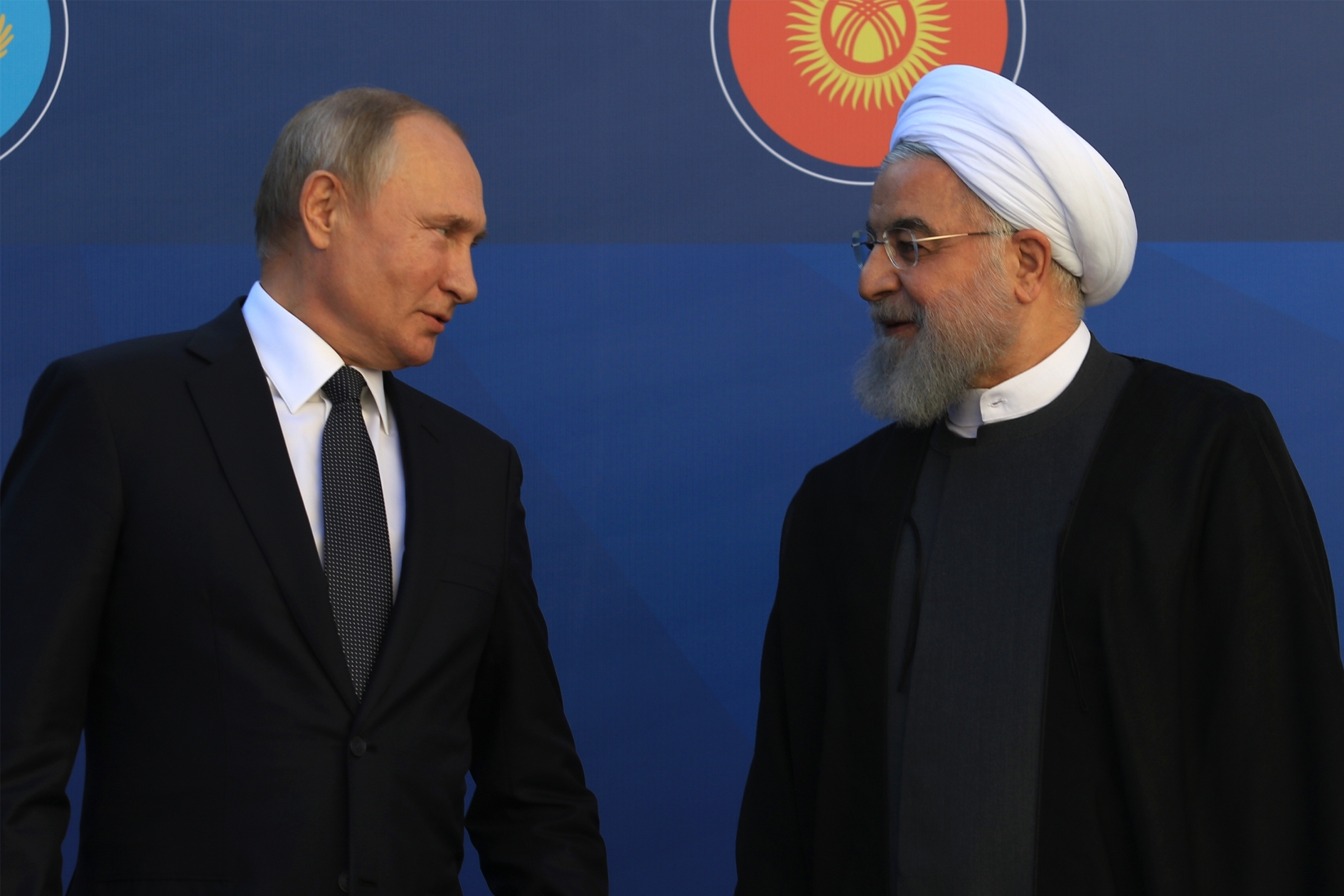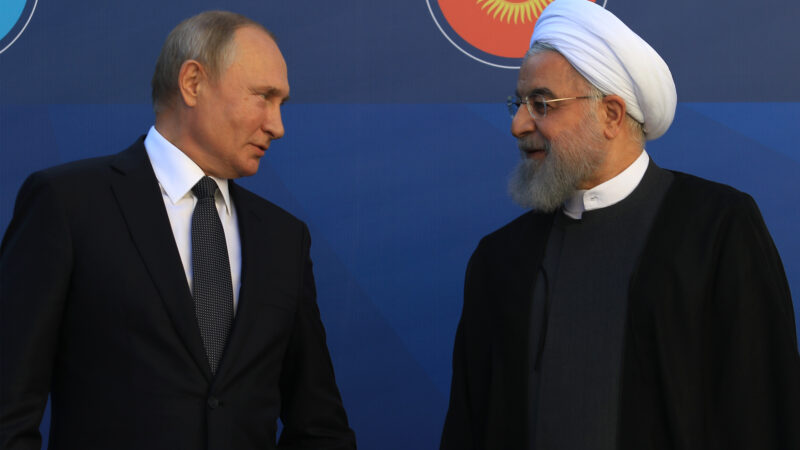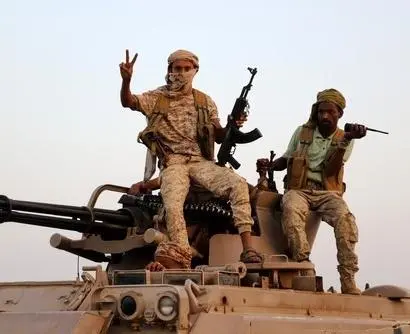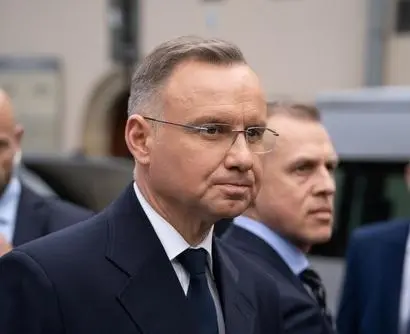Abstract: Russia’s position on Iran’s nuclear issue is a unique case in highlighting the nature of Russia’s foreign policy toward Iran, and as a thorny issue for the West in general and the United States in particular. The importance of the Iranian nuclear file has emerged even in the midst of the Ukraine war, although it has been relatively calm as the West is preoccupied with the conflict with Russia, and Russia’s flexible position to use Iran’s nuclear file as a tool to manage the conflict with the West.
Problem statement: How can Russia’s position on Iran’s nuclear file be assessed and understood in light of the outbreak of the Ukrainian war 24 February on 2022?
Bottom-line up-front: Despite Russia’s divergent position before and after the Ukrainian war on Iran’s nuclear file, we can attribute that disparity to the tense nature of the Russian-U.S. relationship, considering that Russia would use it as a bargaining chip in the event of a settlement with the West.
So what?: With Russia’s clear position on Iran and its nuclear file declining after the Ukrainian war, the status quo can be expected to continue, especially in light of the Russian-Western conflict on several issues. As a result, the Iranian nuclear file is governed by the nature of future Russian-Western relations in the event of a peaceful settlement, not Russian-Iranian relations.
Russia’s Position on Iran’s Nuclear File in Light of the Ukrainian War
Download PDF • 776KB

Source: shutterstock.com/Gevorg Ghazaryan
Iran’s Changing Role on the Geopolitical Chessboard
The correlation between the radical structural changes taking place within the political systems and external behaviors of the states in question is indicative of the change between internal transformations and the differing reactions of other countries in the international system in general to these changes. This is one of the points of concern for many scholars of political science, as demonstrated in the relationship between political systems and international relations, in the so-called Interdisciplinary. This has been shown flexibly as international positions on Iran’s nuclear file, which just began in the middle of the last century, have escalated with the Iran-U.S. rapprochement. The construction of a U.S.-supplied research reactor, the Tehran Research Reactor (TRR), began in 1960. Iran took strides at the time to prove that it was seeking to acquire nuclear weapons only for peaceful purposes and this decision was a strategic option. It also confirmed this by signing the Nuclear Non-Proliferation Treaty in 1968, which it ratified in 1970.[1] Moreover, Iran submitted a draft resolution to the United Nations General Assembly in 1974 calling for the establishment of a nuclear-weapon-free zone in the Middle East. In this context, in the mid-1970s, U.S. intelligence reports expressed concern that Iran might seek a nuclear weapons program that threatened the security of Middle Eastern countries, and that is where the point lies. At that time, U.S. relations with the Gulf states were at their height following the October 1973 war, and the U.S.’s realization as to how important Gulf oil was in changing the equivalence of balances in the region.[2]
Iran submitted a draft resolution to the United Nations General Assembly in 1974 calling for the establishment of a nuclear-weapon-free zone in the Middle East.
For Russia, Iran’s nuclear file has traditionally been overshadowed by other issues in relations between the two countries governed by common national interests. Over the past two decades, Iran has proven to be a trusted friend and ally of Russia in times of need.
Examples of this include Iran’s helping to promote peace and stability on the Caspian coast and Central Asia, reducing the interference of third Western States in regional affairs, combating human and drug trafficking, deterring the spread of internal revolutions, and combating terrorism, which has strengthened relations between them, particularly since Russia considers the Caspian Sea to be an access to warm waters. Russia also has economic interests in Iran, especially oil and gas projects.[3] On the other hand. As a result, there is little room left to confront Iran over Iran’s nuclear issue.
The Role of Western Sociology
According to the theory of the role of Western sociology, it is based on purely socio-psychological foundations so that the individual’s position and influence in domestic and global politics can be understood and analyzed. States rely heavily on the policies and behaviors of policymakers and decision-makers. As a result, the definitions provided for that term are numerous, with Stephen Walker defining the role as “policymakers’ perceptions of their states’ positions in the international system.”
Over the centuries to the present, a group of leaders (Napoleon Bonaparte, Bismarck, Lenin, Hitler, Mussolini, Stalin, Franklin Roosevelt, Winston Churchill, Charles de Gaulle, Mao Zedong, Gamal Abdel Nasser, and Vladimir Putin) emerged whose decisions led to significant changes in the international system and relations between states, whether positive or negative. As a result, the areas of personality studies and political psychology have emerged in connection with role theory.
Motives of Russia’s Position on Iran’s Nuclear File
Russia’s motives can be explained by the view that the nuclear issue falls under U.S.-Iran relations rather than Iran-Russia relations. Over the past 20 years, Russia has played Iran’s card to influence its dealings with Washington.[4] In times of closeness and tension with the U.S., Russia has frozen or strengthened cooperation with Tehran. Moreover, it was a cooperation that reduced the pattern of conflict between Russia and the U.S. The Russian position on the Iranian nuclear issue is governed by the strength of the relationship with Tehran, and the fragility of the relationship with the U.S., especially after the successive economic sanctions against it as a result of the outbreak of the Russian-Ukrainian war.[5] With negotiations to restore the 2015 nuclear deal with Iran, Russia’s invasion of Ukraine has made the agreement more urgent and more difficult to obtain.
The escalation in the Ukraine war will encourage Russia to pursue its strategic objectives of expelling the U.S. from the Middle East and becoming the region’s dominant regional power, goals it shares with Iran, particularly in light of the failure of the Vienna negotiations, and the West’s general inability to settle with the Iranian side.[6] The Iranian government will therefore not be prepared to make any concessions but will strengthen its determination to expel the United States from Iraq, Syria, and the region as a whole.[7]
The escalation in the Ukraine war will encourage Russia to pursue its strategic objectives of expelling the U.S. from the Middle East and becoming the region’s dominant regional power, goals it shares with Iran.
In addition, the Russian decision-maker recognizes that reducing Iran’s influence and discouraging Iran’s nuclear file will not be in its favor, especially with the deterioration that also exists in Iran’s relations with the West and the United States of America in particular. Thus, in 1995, following reconciliation with Washington, relations improved relatively with Boris Yeltsin in power, and Moscow signed the Gore-Chernomyrdin Agreement, which obliged the Russian Government to stop implementing contracts for exports of military supplies to the Islamic Republic.[8]
By contrast, when tensions between the United States and Russia escalated after Putin’s arrival in 2000 and the fears that Russia will deviate from the democratic path applied by Boris Yelstin.[9] From 2006-2008, Moscow not only intensified its military contacts with the Islamic Republic but also tried to compensate for the previous losses imposed by the Gore-Chernomyrdin Agreement. As a result, Russia has provided Iran with technological capabilities, as well as helped it to build the Bushehr nuclear reactor.[10]
Geopolitical Blackmailing
In conclusion, it can be emphasized that the Iranian nuclear file for Putin as the current Ukrainian war continues has become another blackmail weapon with which it can confront the West. The timing of the Ukrainian war for Tehran, just as the nuclear talks were scheduled to reach a critical point or a watershed, could not have been more appropriate. At the very least, the Ukrainian war diverted attention from Iran and the nuclear issue. It helped marginalize it from the global landscape, which would make the U.S. less capable of taking strong positions and give Iran more time to withdraw from negotiations and further develop the nuclear program.
The Ukrainian war diverted attention from Iran and the nuclear issue. It helped marginalize it from the global landscape.
Raméz El-Shishy is a Political Science Researcher & Writer. He Studied at Suez University, Faculty of Politics and Economics. He published many research papers in Arabic and English. “China’s foreign policy toward Egypt since 2011” “The impact of the BRICS bloc on U.S. hegemony”. His graduation thesis is titled “Dialectic of the relationship between Democracy and Economic Development: Empirical Study on the People’s Republic Of China 1978 to 2022”. The views contained in this article are the author’s alone.
[1] Paul K. Kerr, “Iran’s Nuclear Program: Status (2008),” Congressional Research Report,1.
[2] David E. Long, The United States and the Persian Gulf. Current History(1979), 76(443), 27–38, http://www.jstor.org/stable/45314632.
[3] Alex Vatanka, “Russia, Iran, and economic integration on the Caspian,” 2020, MEI, last accessed June 30, 2022, https://www.mei.edu/publications/russia-iran-and-economic-integration-caspian.
[4] Javad Heinran Nia, “Iran won’t break with Russia over Ukraine. Here’s why,” 2022, Atlantic Council, last accessed June 30, 2022, https://www.atlanticcouncil.org/blogs/iransource/iran-wont-break-with-russia-over-ukraine-heres-why/.
[5] Stephen Erlanger, “Iran Nuclear Deal Nears Completion, but Russia Poses Complication,” The New York Times, March 08, 2022, last accessed June 30, 2022, https://www.nytimes.com/2022/03/08/world/europe/iran-nuclear-deal-russia-ukraine.html.
[6] Ahramonline, “Iran says Vienna talks ‘far from balance in commitments,” Ahramonline, February 06, 2022, last accessed June 30, 2022, https://english.ahram.org.eg/News/460586.aspx.
[7] Qassim Abdul-zahra, “Bases housing US troops in Iraq, Syria come under attack,” abcNEWS, January 05, 2022, last accessed June 30, 2022, https://abcnews.go.com/International/wireStory/katyusha-rocket-hits-military-base-baghdad-airport-82083999.
[8] Nikolay Kozhanov, Russia’s Position on Iran’s Nuclear Program, THE WASHINGTON INSTITUTE for Near East Policy, https://www.washingtoninstitute.org/policy-analysis/russias-position-irans-nuclear-program.
[9] Andrea K. Traylor and Erica Frantz, “The Beginning of the End for Putin?,” Foreign Affairs, last accessed June 30, 2022, https://www.foreignaffairs.com/articles/russian-federation/2022-03-02/beginning-end-putin.
[10] BBC NEWS, “Russia to build Iran atomic reactors at Bushehr,” BBC News, November 12, 2014, https://www.bbc.com/news/world-middle-east-30015464.






